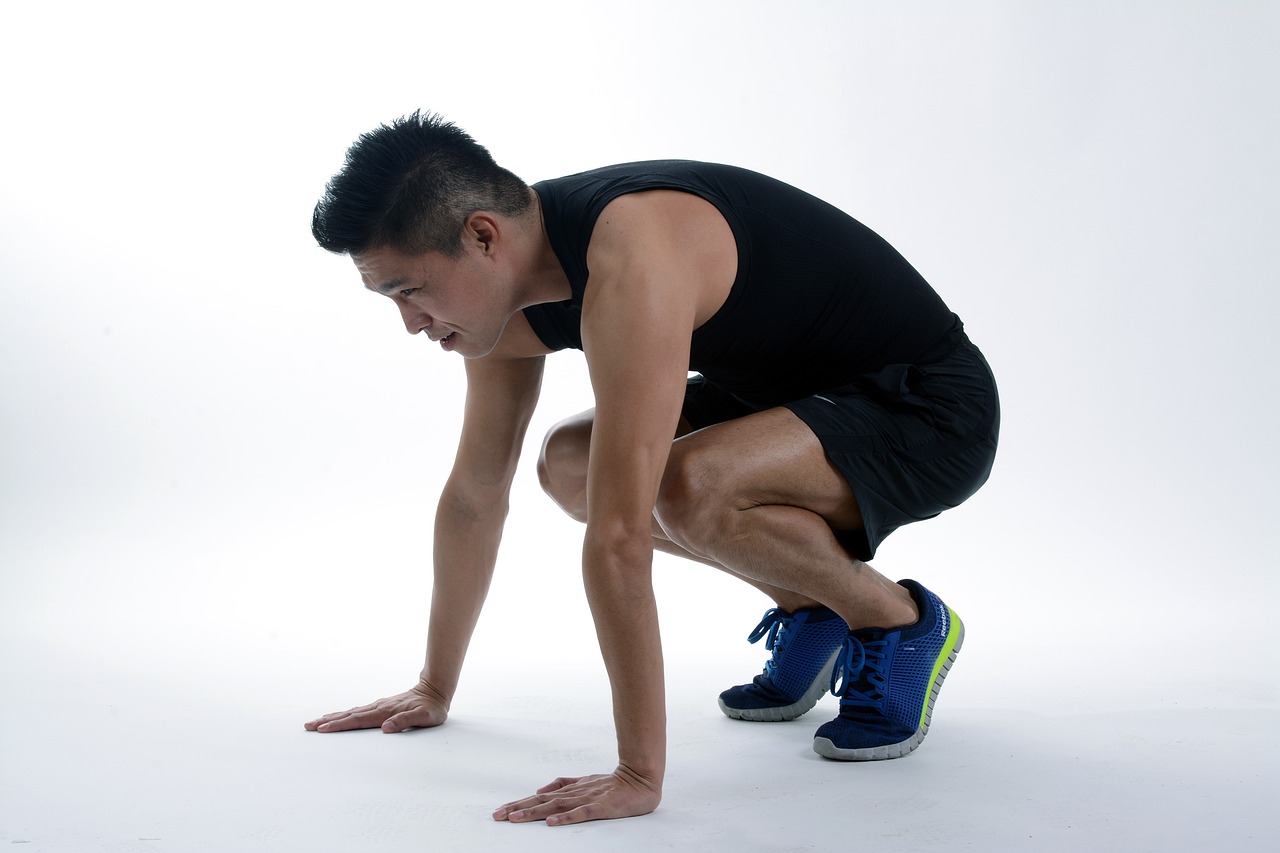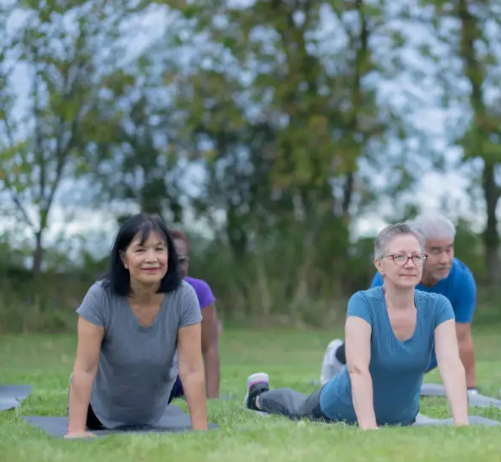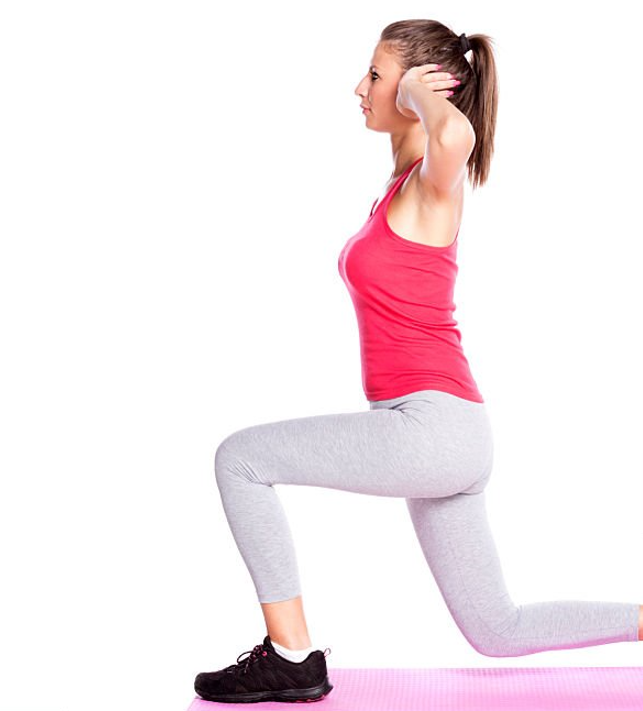People think! How to stay fit after 70 We will describe in this article best exercises for 70 years old for health and fitness.As we age, staying active becomes more important than ever. For individuals over 70, regular exercise can improve mobility, boost energy levels, reduce the risk of chronic diseases, and even enhance mental health. Whether you’re new to exercise or looking to update your routine, this guide offers essential tips for 70-year-olds to maintain a healthy and active lifestyle. People think how to stay active and fit in 70 or best exercises for 70 year old for their completely fitness. We will describe best exercises for 70 years old and fitness ideas.
Why Exercise is Essential for 70-Year-Olds
Exercise for 70-year-olds isn’t just about building strength or looking fit. At this stage in life, exercise plays a vital role in preserving quality of life. Here are some key benefits:
Improves Balance and Flexibility: Regular physical activity helps reduce the risk of falls and promotes better joint flexibility.
Boosts Mental Health: Exercise has been shown to reduce symptoms of depression and anxiety, enhancing overall mental well-being.
Supports Heart Health: Cardiovascular exercises improve circulation, help manage blood pressure, and reduce the risk of heart-related issues.
Increases Energy Levels: Staying active helps combat fatigue, making everyday tasks easier to perform.
Helps Manage Chronic Conditions: Regular exercise can reduce symptoms of arthritis, diabetes, and other conditions commonly associated with aging.
Best Types of Exercise for 70-Year-Olds
When it comes to exercise for 70-year-olds, it’s essential to choose activities that are safe, enjoyable, and effective. Below are best exercises for 70 years old:

Best Types of Exercise for 70-Year-Olds
When it comes to exercise for 70-year-olds, it’s essential to choose activities that are safe, enjoyable, and effective. Below are best exercises for 70 years old:
Walking
Walking is one of the simplest and most accessible forms of exercise for 70-year-olds. It’s easy on the joints, can be done indoors or outdoors, and provides an excellent cardiovascular workout. Whether it’s a daily walk around the neighborhood or using a treadmill, aim for 20 to 30 minutes a day.
Strength Training
Strength training for 70-year-olds is crucial for maintaining muscle mass, which naturally declines with age. Using light weights or resistance bands, performing exercises like bicep curls, leg lifts, and squats can improve muscle strength and stability. Aim for two to three sessions per week, focusing on different muscle groups.
Yoga
Yoga for 70-year-olds provides a fantastic way to increase flexibility, balance, and relaxation. Gentle yoga poses and stretches can enhance joint mobility, reduce stiffness, and calm the mind. Many yoga studios offer classes specifically for seniors, or you can follow along with online videos at home.
Swimming
Swimming is an excellent low-impact exercise that strengthens muscles and improves cardiovascular health without putting stress on the joints. Whether it’s swimming laps or engaging in water aerobics, water-based exercises are great for 70-year-olds looking for a full-body workout that’s gentle on the body.
Cycling
Cycling, whether outdoors or on a stationary bike, is another great way for 70-year-olds to stay active. It helps improve leg strength, coordination, and cardiovascular health. Cycling is also a great option for those who experience joint pain from other forms of exercise.
Essential Tips to Stay Fit After 70″

Prioritize Balanced Nutrition
As metabolism slows down, it’s important to focus on nutrient-dense foods that provide essential vitamins and minerals without excess calories. A balanced diet should include:
- Fruits and vegetables: These are low in calories and packed with nutrients that support overall health.
- Lean proteins: Foods like chicken, fish, beans, and tofu help maintain muscle mass and keep you feeling full longer.
- Whole grains: Brown rice, oats, and whole wheat bread offer fiber that supports digestion and helps control appetite.
- Healthy fats: Include sources of unsaturated fats like olive oil, avocado, and nuts to support heart health.
Watch Portion Sizes
As we age, our bodies require fewer calories due to lower energy expenditure. However, the nutritional needs remain high. Managing portion sizes is key to controlling calorie intake. Consider using smaller plates, paying attention to serving sizes, and practicing mindful eating to avoid overeating.
Increase Physical Activity
Exercise plays a major role in managing weight, particularly by boosting metabolism and preserving muscle mass. Aim for at least 150 minutes of moderate-intensity exercise per week. Some great options for seniors include:
- Walking: A low-impact exercise that improves cardiovascular health and burns calories.
- Strength training: Lifting light weights or using resistance bands helps maintain muscle mass, which naturally declines with age and can lower metabolism.
- Yoga or Pilates: These exercises improve flexibility and balance while also helping to strengthen muscles and manage weight.
- Swimming: A gentle way to stay active and improve cardiovascular fitness.
Stay Hydrated
Sometimes, thirst is confused with hunger, leading to overeating. Drinking enough water throughout the day helps maintain energy levels and supports metabolism. Aim to drink 6-8 glasses of water per day, and consider incorporating water-rich foods like cucumbers, watermelon,
Limit Empty Calories
As we age, the body’s ability to process and burn off sugary foods and drinks becomes less efficient. Limit foods that provide few nutrients but are high in calories, such as sugary snacks, fried foods, and processed meats. Instead, choose whole, minimally processed foods that provide lasting energy and nutritional benefits.
Focus on Fiber
A high-fiber diet is essential for weight management. Fiber helps regulate digestion, keeps you feeling full longer, and supports a healthy gut. Include high-fiber foods like fruits, vegetables, legumes, and whole grains in your daily meals to help control hunger and prevent overeating.
Manage Stress Levels
Chronic stress can lead to overeating or emotional eating, especially when it comes to comfort foods high in sugar or fat. Practice stress-reduction techniques like meditation, deep breathing exercises, or spending time in nature to help manage stress levels and reduce unhealthy food cravings.
Get Enough Sleep
Adequate sleep is crucial for regulating hunger hormones and supporting metabolism. Aim for 7-9 hours of quality sleep per night. Lack of sleep can lead to increased appetite, especially for high-calorie foods, and can hinder weight loss efforts. Create a relaxing bedtime routine and ensure your sleep environment is conducive to rest.
Consult a Healthcare Provider
Before making significant changes to your diet or exercise routine, it’s important to consult with your healthcare provider, especially if you have underlying health conditions. A healthcare professional can help you set realistic weight management goals and ensure that you’re following a safe and effective plan for your needs.
Be Patient and Consistent
Weight management in your 70s is about making consistent, long-term changes rather than focusing on quick fixes. Be patient with your progress and recognize that small, sustainable improvements in diet and activity can lead to lasting results. Track your progress, celebrate small victories, and avoid comparing yourself to others.
Stretching and Mobility Exercises
For 70-year-olds, maintaining joint flexibility is key. Stretching and mobility exercises can help improve range of motion, reduce stiffness, and increase overall comfort. A combination of gentle stretches, such as reaching for the toes or shoulder rolls, can do wonders for flexibility.
Boosting Mental Health After 70″

Stay Physically Active
Regular exercise is not only great for the body but also for the mind. Physical activity increases the production of endorphins, which are natural mood boosters. Whether it’s a daily walk, yoga, or dancing, staying active can help reduce symptoms of depression and anxiety.
Foster Social Connections
Loneliness can be a major concern for seniors, especially if family members live far away. Staying connected with friends, family, or joining social groups can significantly improve mental health. Consider joining clubs, attending senior meetups, or using video calls to keep in touch with loved ones.
Engage in Cognitive Activities
Keeping the brain sharp is essential for mental well-being. Engaging in puzzles, reading, or learning new skills can help maintain cognitive function. Consider hobbies like crossword puzzles, playing a musical instrument, or taking online courses to keep your mind active.
Practice Mindfulness and Meditation
Mindfulness practices such as deep breathing, meditation, or guided relaxation can reduce stress and improve overall mental clarity. These techniques help manage anxiety, promote relaxation, and allow seniors to stay in the moment, reducing feelings of overwhelm.
Get Enough Sleep
Quality sleep is crucial for maintaining mental health. Seniors often experience changes in sleep patterns, but it’s important to prioritize rest. Establish a calming bedtime routine, avoid screens before sleep, and ensure your bedroom environment is comfortable for restful sleep.
Eat a Balanced Diet
What you eat directly affects your mood and energy levels. A diet rich in fruits, vegetables, whole grains, and lean proteins provides essential nutrients that support brain health. Omega-3 fatty acids found in fish, nuts, and seeds are particularly beneficial for cognitive function.
Volunteer and Stay Purposeful
Having a sense of purpose can improve mental health significantly. Volunteering, mentoring, or helping others can foster feelings of accomplishment and satisfaction. Engaging in meaningful activities helps combat loneliness and gives seniors a reason to stay active and involved in their community.
Seek Professional Help When Needed
If feelings of depression, anxiety, or stress persist, seeking help from a mental health professional is important. Therapy or counseling can provide seniors with coping strategies and emotional support. Medication may also be prescribed when necessary, so don’t hesitate to ask your doctor about options.
Create a Routine
Having a daily routine can help seniors stay organized, reduce stress, and provide structure to the day. A balanced routine includes time for physical activity, socializing, hobbies, and relaxation. It also helps prevent feelings of aimlessness, which can contribute to mental health issues.
Stay Optimistic
Maintaining a positive outlook is key to emotional resilience. Practicing gratitude, focusing on the positive aspects of life, and celebrating small achievements can help seniors stay optimistic. Surrounding yourself with positive people and engaging in uplifting activities can contribute to a more positive mindset.
How to Start Exercising Safely at 70
For many seniors, starting a new exercise routine can feel daunting. However, with the right approach, it’s easier than it seems. Here are some tips to help you get started:
Consult with Your Doctor
Before beginning any new exercise program, it’s always a good idea to consult with your healthcare provider. Your doctor can recommend suitable activities based on your current health, any pre-existing conditions, and your fitness level.
Start Slow
If you’re new to exercise or haven’t been active for a while, it’s important to start slow. Begin with short, manageable sessions and gradually increase the intensity and duration as you feel more comfortable.
Focus on Form and Technique
As a 70-year-old, it’s crucial to prioritize good form and technique to avoid injury. Pay attention to your posture, alignment, and breathing. If you’re unsure about how to perform certain exercises, consider working with a trainer or joining a class designed for seniors.
Incorporate Rest Days
Your body needs time to recover from exercise. Make sure to take rest days between workouts to prevent overexertion. Rest days are just as important as exercise for maintaining overall health.
Exercise for 70-Year-Olds: Tips for Staying Motivated

It can sometimes be challenging to stay motivated to exercise, especially when life gets busy. Here are a few tips to help you stay on track with your fitness routine:
Set Realistic Goals
Setting small, achievable goals can provide a sense of accomplishment and motivate you to keep going. Whether it’s walking for 10 minutes every day or increasing your strength training reps, realistic goals will help you stay focused.
Find Activities You Enjoy
Exercise doesn’t have to be a chore. Try different activities to find what you enjoy most. Whether it’s yoga, dancing, or hiking, engaging in fun exercises will make it easier to stay active in the long term.
Exercise with a Friend or Family Member
Having a workout buddy can make exercise more enjoyable and hold you accountable. Invite a friend or family member to join you for walks, workouts, or even group fitness classes.
Track Your Progress
Such as keep track of your exercise routine and progress. Whether you prefer writing it down in a journal or using a fitness app, monitoring your improvements will help keep you motivated.
Common Mistakes to Avoid When Exercising at 70
While exercise is beneficial, it’s important to avoid certain mistakes to ensure safety and effectiveness. Here are a few to watch out for:
Overdoing It: While staying active is essential, over-exercising can lead to injury. Always listen to your body and take breaks as needed.
Skipping Warm-ups and Cool-downs: Such as warming up before exercise and cooling down afterward helps prevent injuries. Spend a few minutes doing gentle stretches or light aerobic activity to prepare your body.
Neglecting Hydration: Such as staying hydrated is essential, especially when exercising. Be sure to drink enough water before, during, and after your workout.
Ignoring Pain: If you experience pain while exercising, stop immediately and consult with a healthcare provider. Such as it can make cause of injury.
You can do these exercises in the morning or evening. Our elder think what is Best exercises for 70 years old read this guide and follow these steps and dont worry about Best exercises for 70 years old.Such as in this article these exercises for you.




